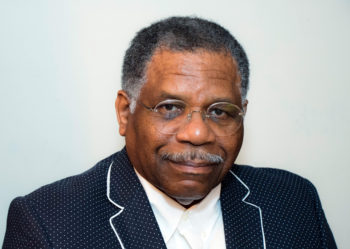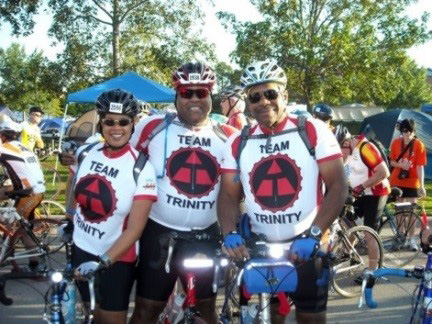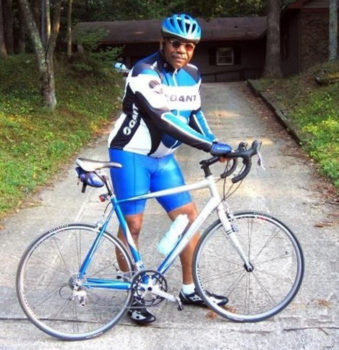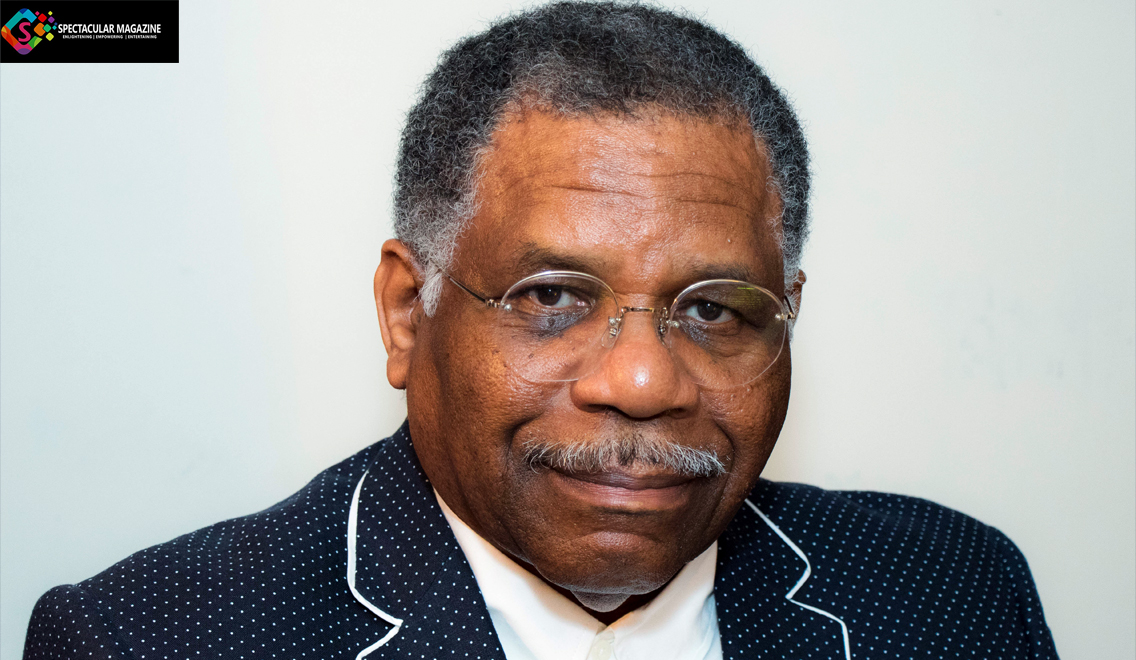Serving Beyond: Rev. Henry L. Edmonds Serves As A Voice For Alzheimers In Black Community
Durham, NC – Rev. Henry L. Edmonds, coordinator for the African American Community Outreach Program (AACOP) for Joseph and Kathleen Bryan Alzheimer’s Disease Research Center at Duke Medicine, is known for his community outreach and dedication to serving others through ministry. His ministry has taken him from rural areas of North Carolina to remote areas of Africa. Rev. Edmonds was formerly employed as Director of the Civil Rights Division of the Community Services Department for the City of Raleigh, NC. While in that position he also served as a volunteer Chaplain at Wake Correction Center of Raleigh and Pastor of Ebenezer Baptist Church in Durham, NC.

With a background of sit-ins, marches, and demonstrations, on behalf of those who have been marginalized by poverty, oppression, and injustice, Rev. Edmonds has always been a human and civil rights activist. As a community activist who is concerned with racial health disparities, he has brought his experience to bear on the issues of Alzheimer’s disease and health inequalities in African Americans. With his current work at Duke’s Alzheimer’s Disease Research Center, he enjoys the opportunity to speak to groups about life choices to help them make decisions to improve the quality of life for their loved ones with Alzheimer’s.
Rev. Edmonds holds a Bachelor of Science Degree from Shaw University, class of 1966, and a Masters Degree in Secondary Urban Education and Administration from Antioch University in Yellow Springs, Ohio, class of 1973. He has also completed work toward the Master of Divinity degree at Shaw Divinity School of Raleigh, NC.
I (SW) had the opportunity to connect with Rev. Henry L. Edmonds (HE) at a local health fair in Durham, NC as he shared his enthusiasm for the people in his community, their overall health and his participation in the upcoming Longest Ride event June 22nd to support Alzheimer’s research and services.
SW: Tell us, what attracted you to the healthcare profession, particularly healthcare education?
HE: As a retired pastor, human and civil rights activist, and community leader, for some time now I have had a great concern toward the racial health discrepancies in African Americans. I enjoy the opportunity to speak to groups about life choices to help them make decisions that may improve their quality of life. I view my work at Duke as an extension of my ministry and understand my role to help Duke form a partnership with the African-American faith community.
SW: Do you feel you are making the impact you desire within the community?
HE: Yes, I feel I am making an impact within the community. I recognize my role in making the connection between research and the community. I understand that much of medical research, not just neuroscience research, does not adequately fund the recruitment portion of research protocols particularly when there needs to be a more deliberate effort to recruit African Americans. Generally, researchers are not trained for community involvement which creates a major barrier to African American participation in research, leading to the therapies coming out of the research being ineffective for treating African Americans.
SW: When did you know it was time to serve beyond and become involved in your local community?

HE: I have spent most of my life as a community organizer, so I have always believed in community involvement to deal with the issues that face our community.
SW: Where do you see yourself in the next 5 years as a healthcare advocate?
HE: I would like to see my work positively affecting researchers as they develop a respect for the work of community organizers and community involvement in the development of research protocols.
SW: Let’s talk about your role as a Health Educator for Alzheimer’s and AACOP Program Coordinator. Why did you decide to serve in the healthcare industry at Duke?
HE: African Americans face a variety of health disparities related to Alzheimer’s disease, from overall incidence to quality of care, to participation in research. I have been working to understand and mitigate these disparities for more than 15 years. My work at the Joseph & Kathleen Bryan Alzheimer’s Disease Research Center (Bryan ADRC) has helped me understand the combination of factors that contribute to these disparities, and how my work at Duke fits into my ministry and human rights activism.
I started at the Bryan ADRC in 1995 as a statewide visitor, volunteer with the African American Community Outreach Program (AACOP). AACOP was organized as an advisory initiative to do three things:
- Increase awareness among African Americans of Alzheimer’s disease
- Inform the Bryan ADRC of community perceptions about Alzheimer’s disease research
- Inform the Bryan ADRC of potential barriers that may limit access to the care and treatment of African Americans.
I began work in my present staff position as Program Coordinator for the Statewide Visitors with AACOP in May of 2002. The Statewide Visitors are African American community leaders representing various social, religious, and political organizations. Through this network, AACOP gains direct input from the African American community regarding attitudes, beliefs, and practices that could create barriers to Alzheimer’s treatment care and research. This information has been used to address specific community needs and help clarify misconceptions that exist.
SW: What, or who has served as your inspiration to give back, educate and advocate for Alzheimer’s disease, or healthcare all together?
HE: I would say that among all the eminently qualified African American researchers I have come to know that the late Bill Jenkins, MS, Ph.D., MPH has impressed me more than anyone. Dr. Jenkins was a government whistleblower who tried to halt the Tuskegee syphilis study that used black patients as guinea pigs, then switched his focus to epidemiology and spent decades battling racism in health care.
SW: What tips do you have for others in the healthcare field desiring to branch out into another aspect of serving as a healthcare professional, whether in the community or business ownership?
HE: We need more African American scientists and researchers to develop culturally competent research that will benefit communities of color.
SW: What is your personal health story?
HE: Fifteen years ago, at age 60, I was working two jobs as a bi-vocational pastor and program coordinator at Duke. Although I educated people in the community about health and nutrition facts, my own health was declining so I retired as pastor and started working with a health and nutrition coach to help get my own health under control. As a result, I lost weight, reduced my waist size, and my doctor reduced my medications. In short, my health and nutrition coach helped me improve my quality of life and take control of my own health and wellness rather than relying on prescription drugs. As part of my conditioning, I began riding a bicycle to support resources and research for conditions like Diabetes, Multiple Sclerosis, March of Dimes, and Alzheimer’s disease.
SW: You have an upcoming event, Alzheimer’s Longest Ride. Tell us about this upcoming event and its benefits to the community.

HE: On Saturday, June 22, 2019, I will be riding in the LONGEST RIDE to support Alzheimer’s research and services. This is a family fun ride that honors those who face Alzheimer’s with strength, heart, and endurance every day of their lives. This is only a small sacrifice that does so much to support programs and services for those living with Alzheimer’s disease. You can help with this effort by going to my team web page at http://act.alz.org/goto/teamlongriders and follow the instructions to make your own donation. Every dollar raised is a secure tax-deductible donation to the Alzheimer’s Association. We ride because current reports state that Alzheimer’s is the sixth leading cause of death for all Americans and the fourth leading cause of death for older African Americans who are two to three times more likely to have Alzheimer’s.
SW: How can our readers connect with you?
Rev. Henry L. Edmonds, MEd, Program Coordinator
Joseph & Kathleen Bryan Alzheimer’s Disease Research Center
2200 W. Main Street, Suite A-200
Durham, North Carolina, 27705
919-668-2676


